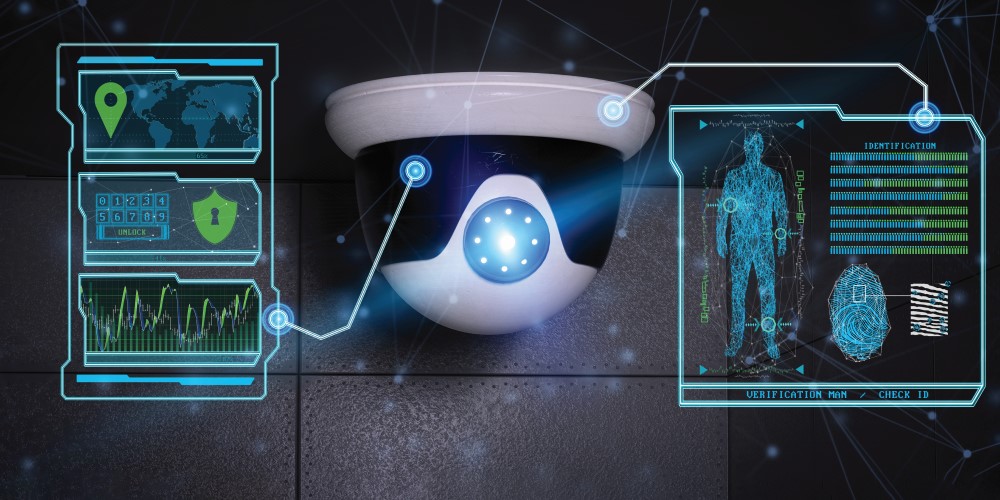Thought Leaders Examine the Future of AI in Security, How It Can Be Utilized
Leading providers, plus a forward-thinking integrator, offer intel into customer benefits, use cases and concerns of artificial intelligence in the security industry.

Industry analysts agree artificial intelligence will have a huge impact on physical security market growth, particularly video surveillance.
Pitching Advantages of AI
AI presents some attractive advantages for end users, and one not to overlook is considerable time savings. Often, there’s so much video and browsing through all that data, Lawlor notes, is impossible.
“Most recorded video goes unwatched,” he says. “The same mentality applies to access — there can be massive logs of activity logging every time cardholders go through a door. That’s a lot of data as well. This technology allows you to mine that. Machines are very good at these repeated tasks once they’re taught how to use them.”
Automation crafted by machine learning, deep learning and AI can enhance the labor and results of manual human tasks.
“This automation can make these tasks operate more quickly, efficiently and with better accuracy,” Palmquist comments. “This automation can then augment the human operators to be better informed more productive. In most use cases AI will not replace the human but instead augment the human to be better and more efficient.”
AI technology is being used as a general term these days, Wu points out, as it covers everything from software that analyzes videos to robots performing physical security patrols.
“What we will see is specialized AI being developed for physical security. Like automobiles, it started as a one-size-fits-all Model T and went on to have specialized vehicles from sports cars to semi-trucks,” Wu explains. “The advantage of a specialized AI is the depth in which it will be able to focus on learning from a specific data-set that will enable it to perform security specific functions like auto threat detection and response, scheduled patrols, large area surveillance via squadron coordination, etc. Overall, the current AI technology is being applied mostly in video analytics, which is an important first step in performing tasks that AI is better suited and demonstrating ROI vs. human monitoring.”
Wu foresees that in the coming years video analytics capabilities will shift more onto edge-based devices as cameras, security robots, and video surveillance software are connected on an IoT network to provide physical security.
Easing Customers’ Concerns
Mention artificial intelligence and most people still take pause, pondering what it actually means in the scheme of security, in particular, and life as we know it, in general. Although it’s been around in more primitive forms for years, accepting AI into the mainstream vernacular will still take some getting used to.
It’s no wonder adoption may be slow in coming, and why many end users are a bit resistant. As Dahua’s Cmarada points out, for customers to see a real ROI with implementing AI technology, they’d need to invest heavily.
“Many customers who have deployed AI technology, and seen an ROI, have done so with a $5 million+ investment, so upfront costs are not only creating hesitations, but it limits the customer base with the current costs associated to deploy.”
Today most commercial applications contain machine learning capabilities, Palmquist notes. These are trained algorithms that improve capabilities and extend the efficiency of operators, he says.
“There seems to be no reluctance to deploy technologies like this. That said, as we begin to see the commercialization of software solutions that can learn and evolve, we should expect to see resistance from users.
“True artificial intelligence applications need to prove themselves to operate within boundaries that meet a defined scope or manufacturers will find resistance to these types of applications,” he continues. “We also need to consider the ethical use of technology as well. As technology gets increasingly capable and powerful, the potential for misuse increases. We as the human operators need to be more vigilant in the application of technology. Facial recognition is an excellent example of technology that can easily be misused. In some countries already we can see examples of facial recognition solutions being used to repress elements of society.”

Genetec’s Citigraf VMS incorporates AI with a correlation and analytics engine that the company says instantly detects and displays relevant information from disparate sources for officers and responders to act on.
Intrepid Integrators Taking Caution
Systems integrators are looking at an entirely new dynamic when it comes to the challenges and opportunities that AI presents to them. Many are proceeding with caution when it comes to adding AI to their scope of services, if they’re even ready to proceed at all.
Genetec’s Lawlor recommends education as the best path for integrators to take when considering AI and advises, “Look at the different applications and capabilities available and know the tradeoffs. Some cool analytics that give value may be too expensive for the midsize customer. They can’t afford this price range whereas others can afford more.”
He points out that much is required to deploy these analytics, so integrators can adjust their market and sell some more service time, especially given they will be able to tailor solutions for specific customer requests.
A retail customer’s needs, he notes, will be different than those of a company operating a multi-entrance building and those of a large industrial complex. It’s up to integrator to custom-design systems — that’s time they can bill for. “It’s about maintaining it and giving the end user what they need.”
Milestone’s Palmquist says he sees a lot of confusion and even pessimism among system integrators, who mistakenly assume they need to program software to make use of this burgeoning technology.
“System integrators should understand that the applications coming from vendors will have new AI elements that will enable them to deliver new innovation to end users. The opportunities to solve complex end user needs are going to change dramatically and for the better as new technology comes to market augmented by elements of AI,” he says. “There are progressive integrators and less progressive ones, and you get a different reaction — some will embrace new technology sooner and others will be more reluctant.”
Wu, one of those progressive system integrators, sums it up by saying, “Most so-called ‘AIs’ will be specific, task-based AI programs akin to a specialized tool in a tool box. What integrators need to do is discover and understand the problems their customers have for which these task-specific AIs can be a potential solution. That will be a good way to discover where the opportunities are. The challenge will come from how AIs are distributed.”
The Nightingale Security CEO says integrators should focus on IoT- and edge-based devices with built-in AI that will require physical installation and integration, as opposed to AI with software that end users can download and install into their existing IT stack.
“The overall scope of service for integrators could remain the same, while the product to be installed and integrated will be different,” Wu explains. “Like all new technology, education is the key towards understanding how AI works and experience and repetition will result in competency. The more you are familiar with it, the less daunting it will be and more control you will have over it.”
Erin Harrington has 20+ years of editorial, marketing and PR experience within the security industry. Contact her at [email protected].
If you enjoyed this article and want to receive more valuable industry content like this, click here to sign up for our FREE digital newsletters!

Security Is Our Business, Too
For professionals who recommend, buy and install all types of electronic security equipment, a free subscription to Commercial Integrator + Security Sales & Integration is like having a consultant on call. You’ll find an ideal balance of technology and business coverage, with installation tips and techniques for products and updates on how to add to your bottom line.
A FREE subscription to the top resource for security and integration industry will prove to be invaluable.








[…] Read more: https://www.securitysales.com/emerging-tech/future-ai-security-robotics/ […]
[…] the full article by Erin Harrington for Security Sales & Integration, published May 13, […]